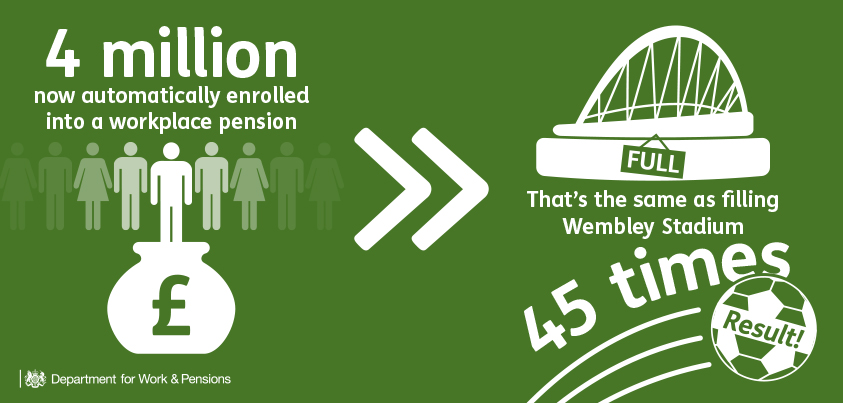4 Easy Strategies To Reduce Debtors
As a small business owner outstanding debtors are a problem that we all face. We spend money on marketing to acquire the perfect customer, then we try our hardest to ensure that they have the best buying experience. We finally, make the sale, and then we can relax.
Unfortunately, this is where your business can run into problems. A sale isn’t a sale, until the money is in the bank.
If you are not collecting what is owed to you, efficiently, and more importantly effectively then, it can have a serious impact on your cash flow, reducing your ability to invest the cash in other areas of your business.
At Crunchers Edinburgh we have moved towards upfront billing and monthly direct debits, however a times we still need to keep a watch on who owes us money.
Here are 4 easy strategies to help reduce the amount of money that customers owe you:
1. Automate invoice reminders
Sometimes customers simply forget to pay your invoice (or at least that’s what is claimed) so one of the ways that you can help reduce your debtors is to automate invoice reminders that go out to them.
This is really easy if you use a Cloud Accounting platform such as Xero or Quickbooks. (If you want to know how then let us know and we can show you) Another more advanced option, if you have a high volume of sales, and debtors is by using a system like Chaser.
Make sure you edit the standard email templates. Nobody likes to receive automated emails that sound like automated emails, if you personalise the email, then you ae more likely to get paid without damaging the customer relationship.
2. Offer alternative payment methods
Try and make it easy for your customers to pay you. The more options you give your customers to pay, the easier it is for them to pay you.
Try to offer a variety of payment methods:
- Pay their invoice online (i.e. connect to a payment processor e.g. GoCardless, or Stripe so they can click through from the invoice and pay)
- Pay via bank transfer
- Pay via cheque
- Pay over the telephone or in person (either by using a virtual payment processor or a chip & pin machine in the office)
3. Outsource your credit control
Like all roles in your company, you have to make sure you have the right person, doing the right job. Having worked for a number of larger companies, you tend to find that your typical, traditional credit controller has a common set of personality traits.
In a typical small business you trend to find that the role is normally completed by one of the following
- The owner (you should not be doing this, your primary role is to build the business)
- The receptionist (they are too nice!)
- Somebody with spare time on their hands (it never happens)
None of the above will work properly.
In order to make it work, you need somebody with a strong no nonsense personality. They need to the tenacity to chase, chase, and chase again. Their sole purpose is to chase your clients for payments, and not take no for an answer!
By outsourcing your credit control, you can have somebody with experience, who is external to your practice (so doesn’t have any relationship ties with your clients) to do the chasing for you. Not only will they chase the clients, but more importantly they will report back on a weekly basis, providing accountability.
4. Weekly debtors meeting
If your debtors are out of control, you need to look at them more frequently. How often do you look at who owes you money. Some of our customers, prior to working with them, only used to put minimal effort into collecting debts. Remember you are not a bank for your customers, and if you have satisfied your end of the bargain and provided a great service or product, then you should expect payment.
If you’re only reviewing debtors once a month or once a quarter, this isn’t enough to bring it under control, start to look at it on a weekly basis, and have a meeting dedicated to Debtors. At the meeting you need to go through each and every overdue debtor, and have a reason why each one hasn’t paid.
Long term solution
Depending on your business, in the long term, the only strategy for completing reducing debtors’ days is to ensure all of your clients are on direct debit.
Not only does this help bring your debtors under control, it also makes things fairer for them because they’ll know exactly how much they pay each month.
However, this isn’t possible for every business. As such, you need to get a system in place to review what is owed to you, as a matter of routine. It is always easier to reduce your debtors by chasing them as early as possible, and if you aren’t chasing them, then they will just build up.
If debtors are an issue for your business, then you need to bring it under control. Ask yourself, how else can the cash currently tied up in debtors be used to further your business or even your own personal goals? If you want to discuss how we can help you reduce your debtors, then please get in touch.
Crunchers – Accountants Edinburgh
© Photo Credit Bill Smith


